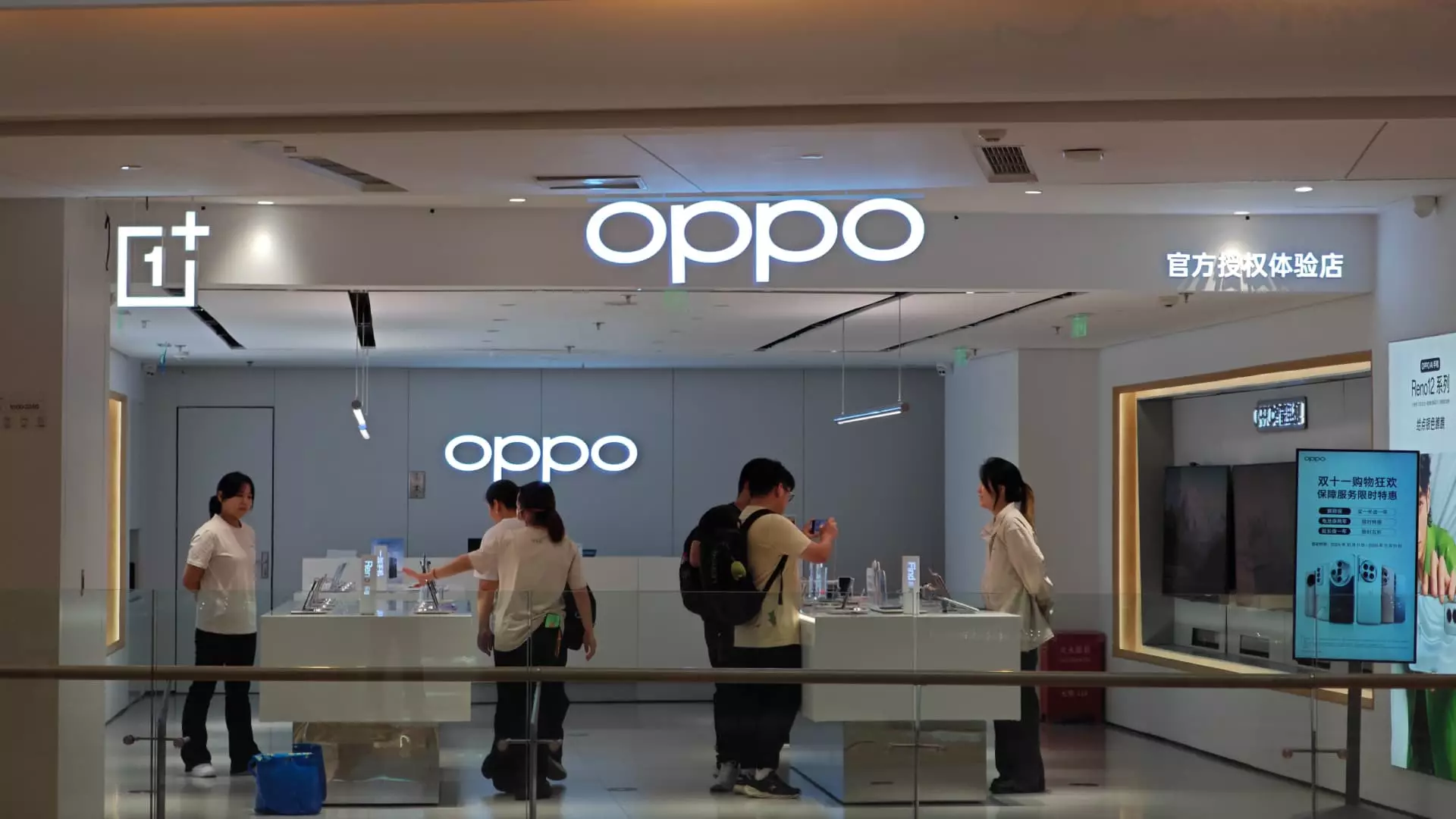As the smartphone landscape becomes increasingly competitive, companies are continuously seeking ways to differentiate themselves. Chinese smartphone giant Oppo is making a significant move to enhance its portfolio by leveraging artificial intelligence (AI). Through ongoing collaborations with tech titans like Google and Microsoft, Oppo aims to integrate advanced AI capabilities into its upcoming flagship devices, setting a new standard in the industry.
Oppo’s approach involves regular discussions with senior figures at Google and Microsoft about various AI applications. Billy Zhang, president of Oppo’s overseas market, has emphasized that these partnerships will focus on assessing customer pain points and creatively addressing them through technology. By engaging directly with industry leaders, Oppo seeks to understand market needs better and use AI to enhance consumer experiences.
The rise of generative AI—machines capable of producing human-like text and solutions—has spurred many companies, including Apple and Honeywell, to explore innovative uses of this technology. While the United States maintains a leading position in AI technology, experts anticipate that Chinese firms like Oppo will excel in consumer applications due to their understanding of localized user demands and preferences.
The Current Market Position of Oppo
Analyzing Oppo’s strategic position within the global smartphone market reveals a robust presence. The company was ranked fourth in worldwide smartphone shipments, accounting for approximately 9% of all units sold recently, according to Canalys. With around 60% of its revenue generated from Southeast Asia and Europe, Oppo is continually expanding its international reach, although immediate plans for entrance into the U.S. market remain uncertain.
Oppo’s commitment to AI is reflected not only in its partnerships with tech giants but also in its internal development efforts. The company plans to infuse AI capabilities into various devices, aiming for integration across 50 million units by the year’s end. Features such as AI-driven photo enhancements and a ChatGPT-like bot are just the beginning of what consumers can expect.
In addition to enhancing consumer-facing products, Oppo is applying AI-driven solutions in its manufacturing processes. Zhang highlighted that automation in production significantly improves quality and efficiency. The company has begun the transition by replacing roughly 8% of its workforce with machines, enabling workers to focus on more complex tasks associated with higher-end product lines.
Oppo’s efforts to digitalize and automate their factories extend beyond just internal improvements; they reflect an adaptability to global market demands. Emphasizing this digital shift, manufacturing director Danny Du explained how technological integration has allowed the company to cut production time drastically and reduce manufacturing costs by nearly 40% over three years.
The implications of generative AI extend far beyond Oppo, as the entire smartphone industry prepares for transformational changes. A report by Counterpoint Research suggests that the market for generative AI-equipped smartphones will swell to a staggering 732 million units sold by 2028, up from just 46 million last year. This massive growth indicates that the competitive edge will increasingly depend on companies’ ability to harness AI.
More traditional players like Apple are also rethinking their strategies, with plans to roll out software updates incorporating AI tools that can perform tasks like removing unwanted features from photos. Meanwhile, rivals such as Honor are unveiling operating systems that utilize AI for everyday tasks, showcasing the rapid pace of AI integration across the sector.
Oppo’s dedicated focus on artificial intelligence reflects a broader trend within the tech industry, where innovation is increasingly intertwined with enhancing user experience and streamlining operations. Through strategic partnerships and internal advancements, Oppo is not only positioning itself as a leader in AI integration but also setting an ambitious agenda that could reshape consumer interactions with technology.
Oppo’s initiatives reveal a vision for a future where smartphones are not merely communication tools but intelligent companions that anticipate and meet user needs. As they continue to roll out AI-enhanced capabilities in their flagship products and across their manufacturing spectrum, the company is poised to redefine consumer expectations and operational efficiencies in significant ways.

